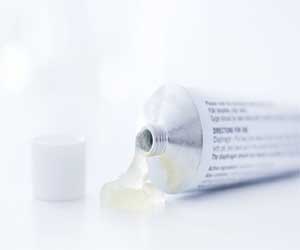- Home
- Editorial
- News
- Practice Guidelines
- Anesthesiology Guidelines
- Cancer Guidelines
- Cardiac Sciences Guidelines
- Critical Care Guidelines
- Dentistry Guidelines
- Dermatology Guidelines
- Diabetes and Endo Guidelines
- Diagnostics Guidelines
- ENT Guidelines
- Featured Practice Guidelines
- Gastroenterology Guidelines
- Geriatrics Guidelines
- Medicine Guidelines
- Nephrology Guidelines
- Neurosciences Guidelines
- Obs and Gynae Guidelines
- Ophthalmology Guidelines
- Orthopaedics Guidelines
- Paediatrics Guidelines
- Psychiatry Guidelines
- Pulmonology Guidelines
- Radiology Guidelines
- Surgery Guidelines
- Urology Guidelines
Next generation gel treats wound infections by lowering inflammatory response

There is an increasing need for new treatments that improve wound healing and reduce complications in patients with various types of wounds, such as burns, surgical wounds, or other types of wounds that don't heal easily. Current treatments are primarily directed solely at the bacteria. The extensive use of antibiotics is adding to the issue of antibiotic resistance. There is no treatment available that may enhance the body's defence.
Researchers at Lund University in Sweden have developed a new hydrogel to prevent and treat infections in wounds. It is based on the body's natural peptide defence and kills multi-resistant bacteria, that may help to curb antibiotic resistance.The research has been published in Science Translational Medicine.
The wound gel is not only antibacterial, it also has an immunosuppressive effect. The researchers have previously shown that the peptides in the gel can inactivate so-called lipopolysaccharides (LPS), that are found in cell walls of bacteria, and that triggers an inflammatory reaction. The reaction is an essential part of our immune system as we quickly respond to and fight bacteria.
"However, severe and uncontrolled inflammation inhibits wound healing, and it is very interesting to see that the gel lowers the inflammatory response within 24 hours of the treatment, and then further reduces the bacterial levels over a period of 3 to 4 days.
We have designed a whole new type of treatment that uses nature's own principles by not only killing bacteria but also acting as an immune-modulating", says Manoj Puthia, a researcher at Lund University and first author of the study.
"The ability to effectively heal wounds is key for our survival in evolutionary terms. There are peptides in wounds that defend against bacteria and prevent their toxins from causing inflammation. The gel is based on these natural defence mechanisms and has had a dual effect - by both preventing as well as treating wound infections", says Artur Schmidtchen, professor of dermatology and venereology at Lund University.
"We will also look into the possibility of developing new peptide-based drugs for eye infections and infections in other internal organs. It could become a new way of treating both infection and inflammation without using antibiotics", concludes Artur Schmidtchen.
For further reference log on to:
http://dx.doi.org/10.1126/scitranslmed.aax6601

Disclaimer: This site is primarily intended for healthcare professionals. Any content/information on this website does not replace the advice of medical and/or health professionals and should not be construed as medical/diagnostic advice/endorsement or prescription. Use of this site is subject to our terms of use, privacy policy, advertisement policy. © 2020 Minerva Medical Treatment Pvt Ltd